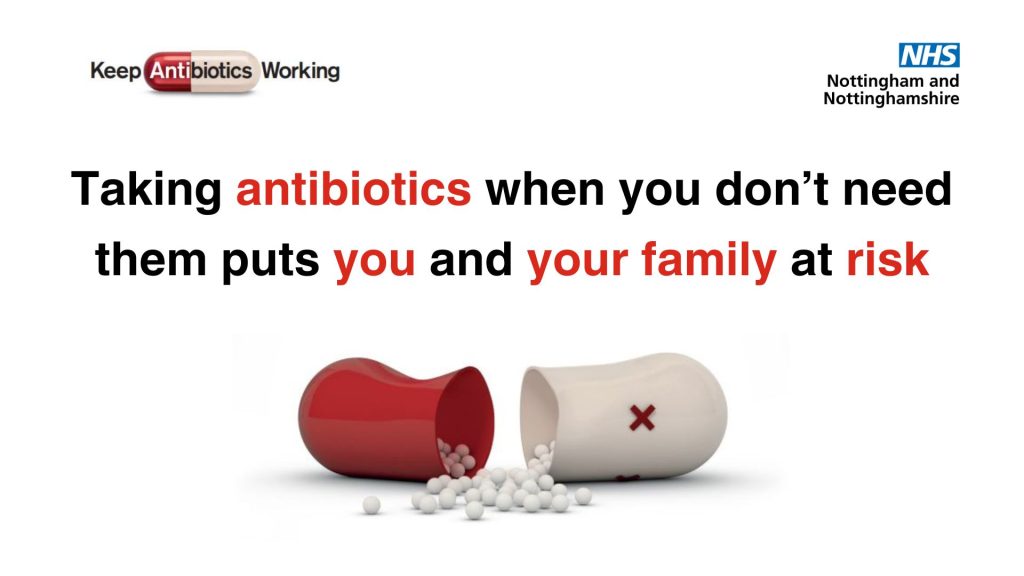Nottingham and Nottinghamshire ICB

Health leaders in Nottinghamshire are raising awareness about the correct use of antibiotics during World Antimicrobial Resistance Awareness Week (18-24 November).
Antimicrobial Resistance (AMR) emerges when microbes evolve to resist the medicines designed to kill them is one of the most urgent global threats to the public’s health.
Unnecessary use reduces the effectiveness of antibiotics and without effective antibiotics many routine treatments will become increasingly dangerous. Setting broken bones, basic operations, even chemotherapy and animal health all rely on access to antibiotics that work.
In England, resistant infections rose by 4% in 2022 after decreasing during the pandemic. So, action is needed to curb inappropriate antibiotic use, a key driver of resistance.
As individuals we can all play a part to keep antibiotics working. NHS Nottingham and Nottinghamshire is offering the following advice to the public:
Dr Manik Arora, Deputy Medical Director (Primary Care) at NHS Nottingham and Nottinghamshire ICB, said: “Antimicrobial resistance poses a serious threat to future healthcare, worldwide. We run the risk of going back to the time before antibiotics existed, when infections that we now regard as trivial were fatal. But it’s not too late if we act fast and all play our part.
“Antibiotics have become the ‘go to’ treatment that we think we need when we are feeling under the weather but, in fact, many infections are viral and can be treated by a combination of rest and over-the-counter medicines from your local pharmacy.
“If you are prescribed antibiotics, always finish the course. Even if you are feeling better and as with any medicine that’s prescribed for you, never share it with other people.”
Prescribing of antibiotics in England increased in 2022 after years of decline. All settings (except dental) saw more use, with total prescribing increasing by 8.4% in 2022 compared with 2021. However, overall use remains below pre-pandemic levels.
The AMR National Plan has set a target to reduce antibiotic use by 15% by 2024.
ENDS
